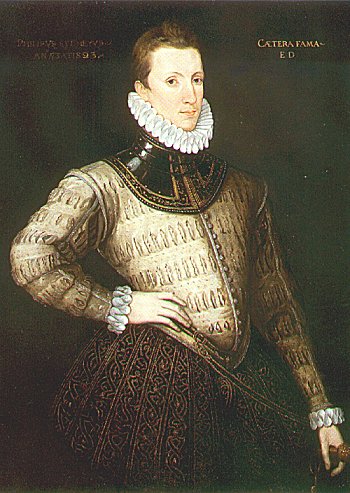
Philip Sidney
The essence of his defense is that poetry, by combining the liveliness of history with the ethical focus of philosophy, is more effective than either history or philosophy in rousing its readers to virtue.
“is no art delivered to mankind that hath not the works of nature for his principal object” (Leitch, Sidney 330). The poet then does not depart from external nature. His works are "imitation" or "fiction," made of the materials of nature, and are shaped by the artist's vision. This vision is one that demands the reader's awareness of the art of imitation created through the "maker," the poet (Kimbrough 45). Sidney's notion of "fore-conceit" means that a conception of the work must exist in the poet's mind before it is written (Harvey 3). Free from the limitations of nature, and independent from nature, poetry is capable of "making things either better than Nature bringeth forth, or, quite anew, forms such as never were in Nature"
The essence of his defense is that poetry, by combining the liveliness of history with the ethical focus of philosophy, is more effective than either history or philosophy in rousing its readers to virtue.
“is no art delivered to mankind that hath not the works of nature for his principal object” (Leitch, Sidney 330). The poet then does not depart from external nature. His works are "imitation" or "fiction," made of the materials of nature, and are shaped by the artist's vision. This vision is one that demands the reader's awareness of the art of imitation created through the "maker," the poet (Kimbrough 45). Sidney's notion of "fore-conceit" means that a conception of the work must exist in the poet's mind before it is written (Harvey 3). Free from the limitations of nature, and independent from nature, poetry is capable of "making things either better than Nature bringeth forth, or, quite anew, forms such as never were in Nature"

No comments:
Post a Comment